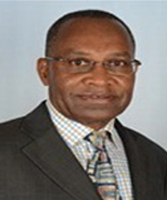
Wilfred F. I. MLAY
YEAR OF MATRICULATION: 1967
EDUCATION:
An alumnus of the University of Dar es Salaam of the graduating class of 1970, Wilfred Mlay can be said to be a rare yet admirable amalgam of a university scholar, professor and academic manager; an international service citizen; and latterly a theologian and a reverend pastor. He was born in 1943 (+/-) in the northern district of Moshi of Kilimanjaro region, and had his eight years of primary/middle school education there until 1959. From 1960, he was among best-performing pupils from around Tanganyika Territory selected to join Tabora Government Secondary School, at that time an only boarding secondary school equipped to accommodate all six classes from Form I to Form VI [Standard 9-14] in the same premises. This was a territorial government school tutored by selected well-qualified international staff mostly from the Commonwealth countries such as Canada, Australia and New Zealand, but also from USA. Some of Mlay’s best-mastered subjects included English, English Literature and Geography for which he still has vivid memory of his favourite Tabora School teachers such as Mrs Partner, Mr. Achurch, Mr (now Prof.) Sowden, Lillistone and Dance. In 1966—with good ‘Advanced-level’ passes in the Cambridge University examination syndicate—Mlay was admitted to a three year undergraduate degree programme at the Dar es Salaam University College (UCD) of the University of East Africa (UEA).
At the Faculty of Arts and Social Sciences [now split into two autonomous colleges of Social Sciences and of Humanities], Wilfred enrolled in Geography as his major, although he never abandoned English and Literature. He successfully completed the programme in 1970, with honours. The Geography Department subsequently recruited Mlay to a staff-development position of Tutorial Assistant. In the following year, Wilfred obtained a scholarship for postgraduate study in Geography, registering at the University of London for a doctoral programme that combined attendance also at the associated Birkbeck College. He earned his DPhil in Population Geography in 1974 and his thesis was on assessment of inter- and intra-regional migration in Arusha region.
On returning from overseas studies, Dr. Mlay moved steadily through ranks from Tutorial Assistant to Assistant Lecturer, to Lecturer, to Senior Lecturer, to Associate Professor, and to full Professor within a period of some 16 years. Within this period, he also served in management capacities as head of department (Geography) and later as dean of faculty (Arts and Social Sciences). Professor Mlay is associated with a number of publications, including “Migration” in 1978 Population Census, Vol. VIII, pp.125-180; Population redistribution in Tanzania (with P.S. Maro, 1879); Mlay, W “Population dynamics and the Environment” (1981); Decentralisation and the organisation of space in Tanzania (with P.S. Maro, 1982; “Decentralisation and rural transformation in Tanzania” in Rural transformation in East Africa (edited by
H. Okoth-Ogendo, Black Star, Nairobi); “Pitfalls in rural development: The case of Tanzania” in Challenging rural poverty (edited by Fassil Kiros, Trenton: Africa World Press, 1985, pp.81-98); and Environment and sustainable development in Eastern and Southern Africa: Some critical issues (edited with Abdel Ghaffar M. Ahmed, Addis Ababa: OSSREA, 1998).
Sometime in the 1990s, Professor Mlay left University service to join several international organisations where he has made his contribution in high-ranking leadership positions for over 20 years. One of these organisations is World Vision International (WVI), first as Chairman of the Advisory Council, Tanzania (1989), then as vice-chairman, International (1992-98) and subsequently vice president for Africa (since 1998). Other organisations to which he has offered his leadership service (as chair, director or other) include the Organization of Social Science Research in Eastern Africa (OSSREA); International Fellowship of Evangelical Students; International Bible Society, East and Southern Africa; Great Lakes Initiative (GLI) Leadership Institute of East Africa, where Professor Reverend Mlay has served as one of the Ambassadors for peace and reconciliation in the region (since 2006), as well as a Board member on ‘Maternity Africa’ an Arusha-based donor-supported, not-for-profit organisation (first established in 2013), dedicated to improving maternal health conditions for vulnerable and marginalised women and girls of childbearing age living in poverty across the rural Tanzania.
Last, but not least a matter to mention, is an entry by Professor Wilfred Mlay into the Christian religious ministry as a reverend pastor, a Deacon of the Anglican Church, Diocese of Mt. Kilimanjaro, where he is practising both at home and internationally. His alma mater, along with his past classmates, surely feel proud of him.

